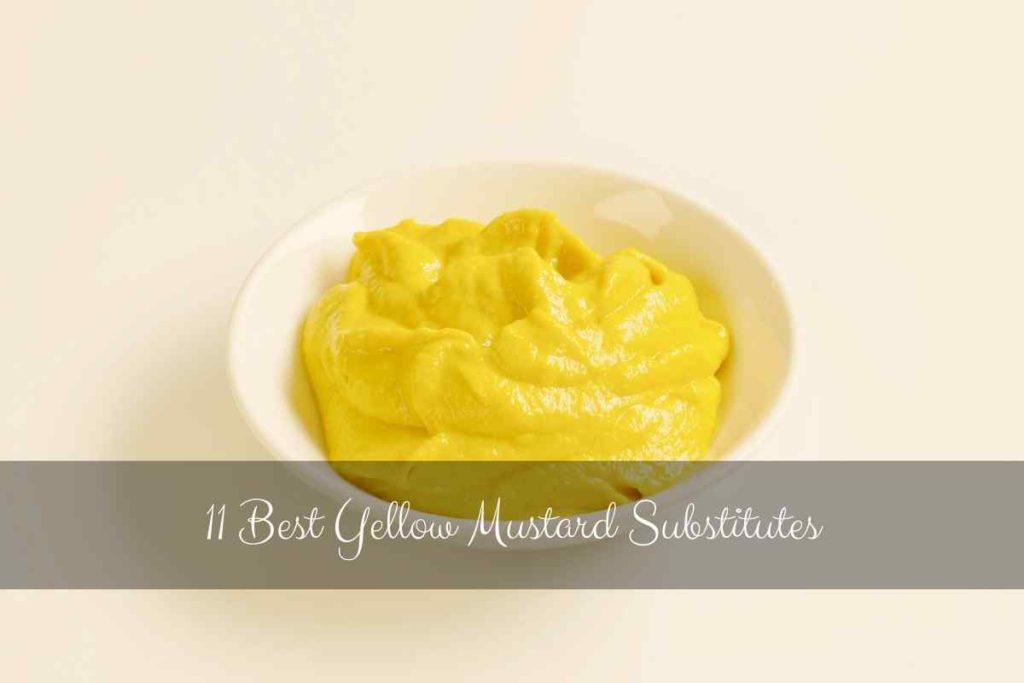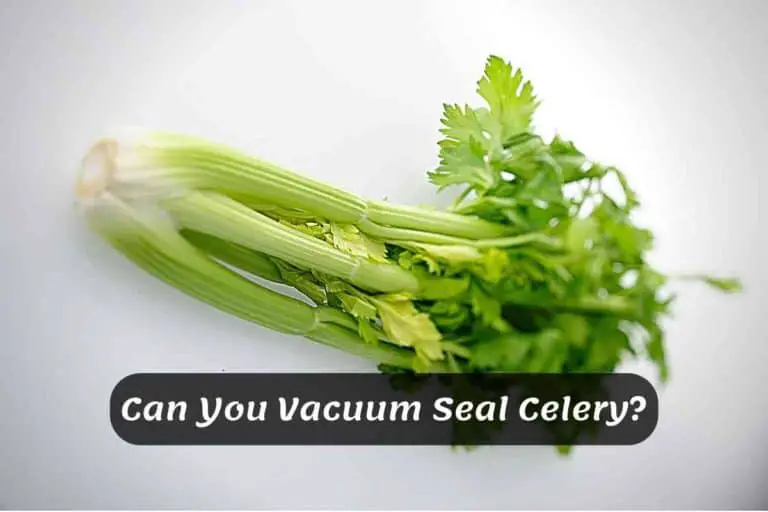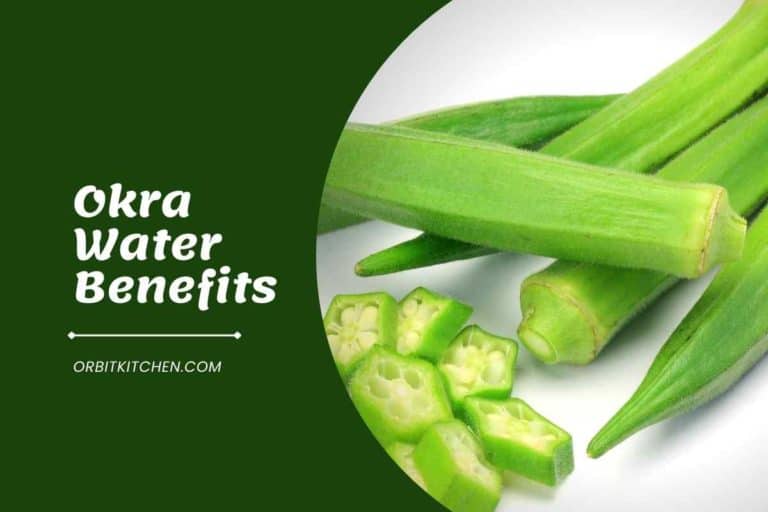11 Best Yellow Mustard Substitutes
Yellow mustard is a common condiment that is used in many cuisines around the world. It is a delicious, tangy flavor that can be used as a table condiment or a dipping sauce. But, for those who are allergic to it or don’t like it, there are some great alternatives.
In this guide, we’ll give you the 11 best yellow mustard substitutes, so keep reading to learn more about the best options.

11 Best Yellow Mustard Substitutes
There are different mustard substitutes that you can use instead of yellow mustard. The list below includes some of the most common ones.
1. Honey Mustard
Honey mustard is the best substitute for yellow mustard. It’s sweeter than your standard Dijon, has a distinct flavor and texture, and comes in several varieties. It is more expensive than yellow mustard and isn’t as spicy as traditional yellow mustards. However, this can be advantageous if you want some heat in your dish without sacrificing the tangy taste of traditional yellow mustards.
2. Curry Powder
Curry powder is a blend of spices, each one playing a specific role in making up the final flavor. Sometimes it’s yellow; other times, it’s not. It has a strong flavor and aroma. It works because curry powder contains all the things that make up yellow mustard, including turmeric (which gives mustard its characteristic yellow-red hue), coriander, and cumin (which provide spicy and earthy undertones), as well as black pepper for heat and ginger for sweetness.
The best way to use curry powder as a substitute for mustard is by adding it directly to your food after cooking it—add some at the very end of cooking if you want more mild flavors; add more if you wish bolder ones! You can also mix curry powder into mayonnaise or yogurt before using them on sandwiches or burgers for an easy spread that pairs perfectly with cheese slices
3. Horseradish Mustard
Horseradish mustard is one of the best mustard substitutes. It is a spicy, tangy condiment that tastes great on hot dogs, burgers, and grilled meats. It is also good on potatoes and other vegetables.
Try using horseradish mustard as a vinaigrette. Horseradish mustard is similar to yellow mustard but with more spice. A little goes a long way, so you can use it sparingly as a condiment on sandwiches or burgers. It’s also great in salads and coleslaw!
4. Turmeric
Turmeric is an excellent substitute for yellow mustard. It’s popular in Indian cooking and is a good source of vitamin C, manganese, and iron. Turmeric is also packed with fiber; according to the University of Maryland Medical Center (UMMC), it contains about four percent dietary fiber per 100-gram serving.
Turmeric contains more than two dozen antioxidants, including curcumin—the most active antioxidant in turmeric that contributes to its bright yellow color—which has been linked to many health benefits such as anti-inflammatory effects.
5. Homemade Yellow Mustard
Homemade yellow mustard is one of the easiest and best ways to make a substitute. It is also an excellent way to use any extra mustard in your refrigerator.
You can make your mustard at home with some simple ingredients. All you need is a blender and a jar. You can use the blender to blend the mustard seeds and spices. Then, you just need to pour the mixture into the jar.
6. Dijon Mustard
Dijon mustard is one of the most popular mustard substitutes. It is a classic French condiment used on everything from sandwiches and burgers to salads and even pizza. It has a tangy, spicy flavor that is perfect for various dishes.
It’s a good choice for salads and sandwiches but works well as a dip for veggies or meat. It has a sharp, tangy flavor that isn’t too spicy. It goes well with most foods except seafood and mayonnaise-based salads (because it can be too tangy).
It is also great for dipping your French fries in. The best thing about Dijon mustard is that it is found in most grocery stores. It is also a must-have in your pantry.
7. Barbeque Sauce
Barbeque sauce is a good substitute for yellow mustard. It is similar to yellow mustard but has a milder flavor. If you prefer a hotter taste, then you can also try horseradish.
Use it in sandwiches, burgers, or as a dip. Use it with chicken or beef. You can also mix barbeque sauce with mayonnaise to make your special dip for vegetables and chips!
8. Tahini Sauce
Tahini is a paste made from sesame seeds. It’s often used as a spread, but it’s also great in salad dressings and sauces because of its creamy texture and nutty flavor. The best thing about tahini is that it’s a perfect substitute for yellow mustard when making sandwiches.
It gives your sandwich some extra kick without adding too much spice or heat (as opposed to other hot sauces).
9. English mustard
English mustard is spicy mustard made from a mixture of brown and white mustard seeds. It is usually a combination of Dijon mustard, a type of brown mustard, and whole grain mustard, a kind of white mustard. The two combine to create a tangy, spicy flavor that is perfect for eating with your favorite foods.
If you’re looking for yellow mustard that is not made from brown or white seeds, then English mustard may be your choice. While there are different types of English mustards (gray, brown, and black), the most common version is yellow.
10. German mustard
German mustard is a milder version of traditional yellow mustard with yellow and brown seeds. It has a smooth texture, which makes it great for sandwiches, hot dogs, and bratwursts.
It’s also the most popular variety in Germany—so much so that it’s sometimes called “German” mustard even though it isn’t technically German (it originated in France).
11. Spicy Mustard
Spicy mustard is a popular condiment that tastes almost identical to yellow mustard but with a spicy kick. It’s made by mixing ground mustard seeds with vinegar and other ingredients such as turmeric, salt, and sugar. The result is a thick paste similar to American yellow mustard in taste and consistency but has more flavor thanks to the added spices.
Spicy mustards are used in many cuisines worldwide, including Indian curries, European sausages, and even American BBQs! If you love spicy foods, then this is something you’ll want to keep on hand!
Best Yellow Mustard Substitutes – FAQs
What Is Yellow Mustard Made Of?
Mustard is made from yellow or brown mustard seeds, vinegar, and water. The best-tasting yellow mustards come with a bit of kick to them. Mustard seed is ground into a paste before being mixed with vinegar and water.
Yellow mustard can be either hot or mild depending on its ingredients and preparation; brown mustard has more complex flavors than its yellow counterpart.
Mustard belongs to the cruciferous family of plants, cauliflower and cabbage, and cabbage’s close relative’s kale and Brussels sprouts.
What Mustard Is Closest to Yellow Mustard?
If you’re looking for a substitute for yellow mustard, it’s best to look at other mustards and see if they can help you. If you find yourself in the kitchen with no yellow mustard and no black mustard seeds, plenty of other options could work well as a substitute.
The first one to consider would be the yellow seeds of the mustard plant itself (Brassica juncea). You can grind these seeds into a paste that tastes similar to their darker counterparts but isn’t quite as sharp or intense.
They’re also more common than black mustard seeds in many grocery stores, so they may be easier to find if you don’t have any black ones on hand!
Can I Substitute Yellow Mustard Seeds for Black?
The answer is no. Yellow mustard seeds, used to make yellow mustard, are not the same as black mustard seeds. Black mustard seeds are typically used for Indian food such as hot dog relish or chutneys.
They also make an excellent addition to your next brown or white bread batch! If you’re looking for a substitute for yellow mustard, try making your own with this recipe:
Conclusion
We hope that this post, “11 best yellow mustard substitutes,” will help you to find the best alternative to yellow mustard.
As we’ve seen, there are plenty of options for yellow mustard substitutes. Most of them are easy to find, and you probably even have some in your kitchen right now.
They vary in taste and texture but will work well enough for any recipe for yellow mustard. If you can’t find any of these at home or the store, Dijon mustard is one last option—though it’s not as tangy as yellow mustard, it’s still a good choice if you’re out of all other options.

![Can You Vacuum Seal Kale? [Solved]](https://orbitkitchen.com/wp-content/uploads/2022/07/Can-You-Vacuum-Seal-Kale-768x512.jpg)





